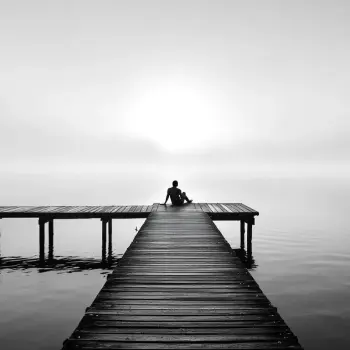So, how to designate the study of church division? I chose to take up the term "eristology" just to point to this challenge: eris is the Greek term for "strife" and "discord," and it was the Greek goddess Eris, associated with this reality, whose machinations touched off the horrors of the Trojan War. If Christians want to study their own divisions, we need to realize what we are looking at: the source and working out of human conflict itself. This isn't just about agreeing on difficult doctrines, or how to organize the Eucharist; doctrine, order, and sin are all bound up together.
In what ways does your theology of God reflect or shape your theology of the Church? In other words, is the unity within the Trinity indicative of something the Church should be experiencing? Or is it merely a promise of our spiritual future?
I'm not too keen on using the Trinity as a "model" or "analogy" for human community (or anything else, for that matter). In practice, that has tended to lead theologians either to idealize or banalize human life together (happy give-and-take, dancing, conversation, multi-cultural dialogue, etc.) or—more realistically but horrifically—to project violence and conflict into God's own self (as did the 17th-century mystic Boehme: persons of the Trinity "overcoming" each other). If there is a divine analogy for human community, it is the dual aspect of divine creation of what is not God, and the self-sacrificial giving over of God for and to what is not God and has opposed God. That underscores my understanding of what Christian "unity" must finally come down to. I certainly think that there are ways to think about this in Trinitarian terms, and that we should try (I would like to do so in a future book). But we need to be very, very careful about how this is done.
What would genuine healthy Christian unity look like? How does diversity fit into unity?
Christian unity is the sacrifice of oneself, in Christ, for one's enemy, and the church is the community of such self-giving as embodied and shared in Christ Jesus. Several things come from such a definition. First, diversity and difference is assumed here: there are no enemies nor is there sacrifice if there is no difference. At the same time, however, difference is not morally validated in itself; much of the diversity in our world and communities is the result of sin and furthers sin.
Of course, it is hard to distinguish origins of difference. The giving over of our selves in Christ's own self-giving is not the denial of difference—whether that difference be sinful or not—but the suffering of it in the power of divine love, such that the truth of God is given form within our complex history. Only the sacrifice of self for one's enemy joins together truth and unity both. Another thing, though, that derives from this from an ecclesial point of view is this: the church can never exist as a static entity, nor is its unity ever static. The church's unity is given in her continual struggle both to be true to its form as a community of enemies in mutual self-sacrifice, and to being taken up, more fundamentally, by God's own sacrificial embrace in Christ, precisely because she cannot fulfill perfectly her life as such a community. This is closer to a view of the Church as the corporate embodiment of Luther's notion of "justification by faith."
What about the rise of liberal political theory has affected Church unity?
One of my main arguments in the book is that the rise of and evolution of the liberal polity tracks with the failures of the Christian Church to live a life of Christian unity. Liberal politics is a kind of secular compensation for the Church's sins of division. And as a result, then, we can look to the mechanisms of common life within liberal polities and learn something about the deep dynamics of unity, however secularly they are embodied. One of the main things we learn is that the coherence of the liberal state is granted, not in "consensual" unity—everybody agreeing—but in a process by which people live in continued self-deferral. That is, we live in a state where we are always "giving up" convictions we hold dear, often deeply. Hence, we allow in the U.S. a President or Congress whom we did not vote for or whom we do not support, to implement policies that we abhor. We wait for the next election; sometimes we wait our whole lives. During that time, we may struggle to change minds and policies; but if we fail in doing so, we necessarily submit to what we oppose. We do it for the sake of peace.
More than this, I argue that this is in fact the way human beings actually grow and learn, cognitively and otherwise, from their infancy. And these are "shadows," as I call them, of the deeper realities of God's own creative self-giving that founds our being. They are shadows because they indicate something true about who are and are meant to be; but they are also finally utterly inadequate to explaining or fulfilling our created purpose, whose "substance" lies elsewhere. The liberal polity is a compensation for Christian failure. But it cannot embody the Christian truth and calling that is given only in the Cross; liberal polities, like all polities, will always end in conflict, indecision, and complicity. Only the Church can move beyond this.




